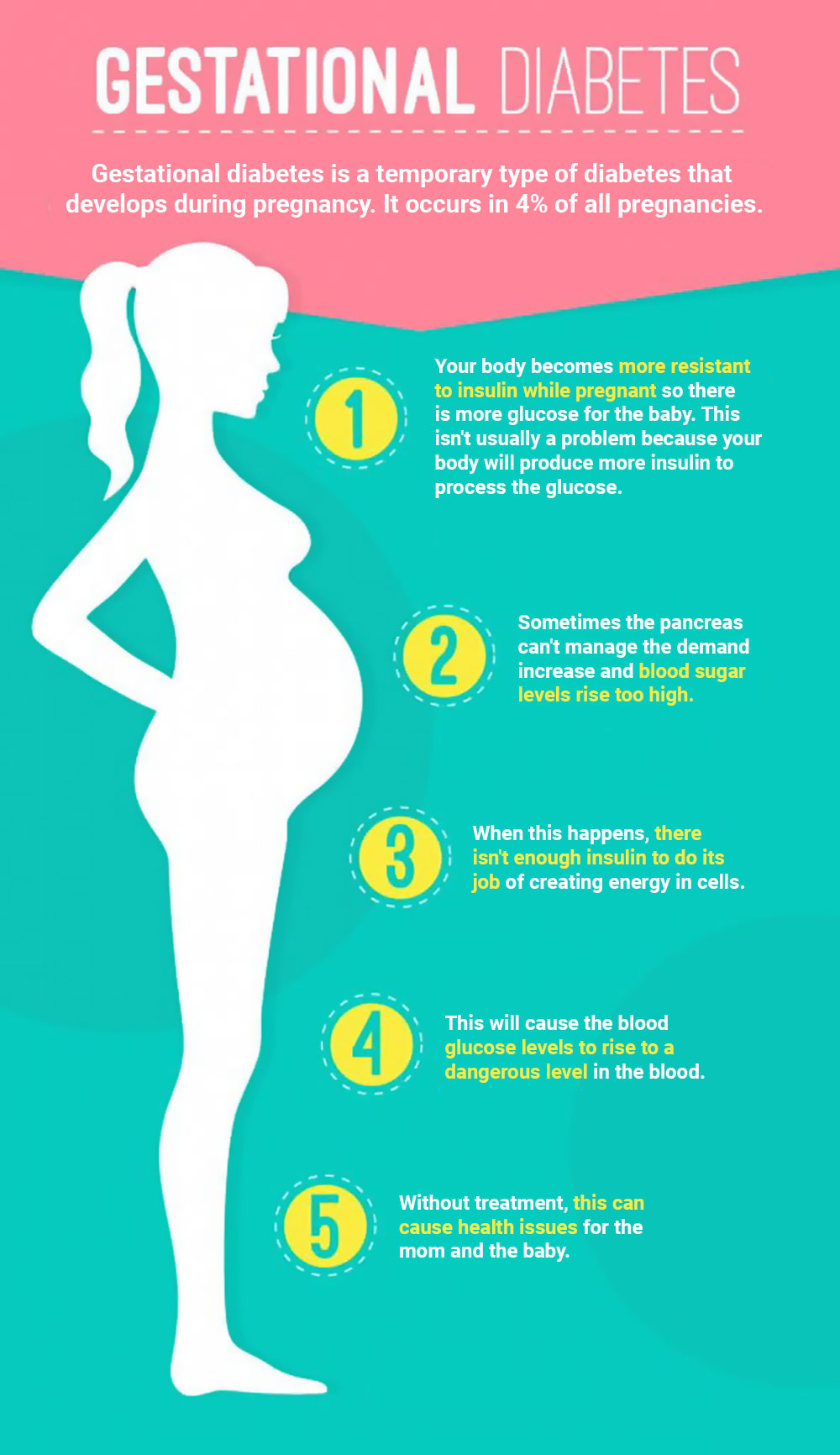The risk of gestational diabetes can be determined up to 7 years before pregnancy based on assessing measures of body weight and blood sugar routinely. 580 ethnically diversified women participated in the study and women who experienced gestational diabetes while pregnant were compared to those who didn’t have gestational diabetes. It was found that the risk of gestational diabetes increased directly with the amount of undesirable risk factors typically connected with heart disease and diabetes that were present before pregnancy, such as hypertension, high blood sugar, and overweight. They also found that undesirable levels of body weight and blood sugar were linked to a 4.6 times increased risk of gestational diabetes, in comparison to women having normal levels.[1]
Previous research has revealed that women developing gestational diabetes while pregnant are more inclined to suffer from Type 2 diabetes following pregnancy. Gestational diabetes is characterized by glucose intolerance which usually takes place during the 2nd or 3rd trimester and results in complications in as many as 7% of pregnancies in the US. It can result in early delivery and Cesareans, and increases risk of the baby developing obesity, diabetes, and metabolic disease later on in life.
The research suggests that cardio-metabolic risk profile for factors regularly evaluated at clinical visits could help physicians in identifying high-risk women for early gestational diabetes management.
Even though the established gestational diabetes risk factors are obesity, older maternal age, non-white ethnicity/race, a diabetes family history, and having previously given birth to a really large baby, these risk factors are lacking in as many as 50% of women that experience gestational diabetes. A better knowledge of gestational diabetes pre-pregnancy predictors could help in identifying women at risk and before becoming pregnant, and initiate intervention programs for preventing gestational diabetes and its related risks.
